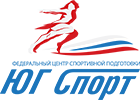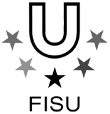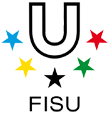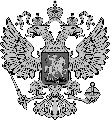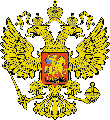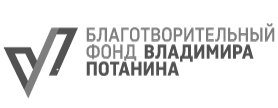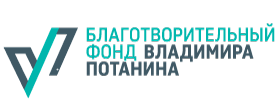 Schedule
Schedule
22.09.14-27.12.14
SOCHI
Unit: Understanding Governance. Professor Vassil Girginov
| Date | Time | Content |
|---|---|---|
| Monday 22/09/14 | 09.00-11.00 | Lecture 1: Governance, politics and the Olympic Movement –introduction to the module Seminar 1: Key concepts in governance |
| 14.30-16.30 | ||
| Tuesday 23/09/14 | 09.00-11.00 14.30-16.30 | Lecture 2: Understanding governance
Seminar 2: Governance dilemmas |
| Wednesday 24/09/14 | 16.00-18.00 | Tutorial: Directed task |
| Thursday 25/09/14 | 09.00-11.00
14.30-16.30
| Lecture 3: Governance as polity, policy and politics
Seminar 3: Governance of global sport organisations |
| Friday 26/09/14
| 11.00-13.00 16.00-17.00 | Presentation Tutorial: Directed task - Quiz |
Unit: Fans engagement: Professor Alexey Kirichek
| Date | Time | Content |
|---|---|---|
| Monday 29/09/14 | 09.30-10.30
13.00-15.00 16.00-18.00 | Lecture 1: Presentation of the course: goals, objectives and results. Seminar 1: Engaging fans in cities with different sport clubs. Individual Assignment 1 Tutorial: Directed task. Preparation for Assignments. |
| Tuesday 30/09/14 | 09.30-10.30
13.00-15.00 16.00-18.00 | Lecture 2: Methods and techniques for the analyzing of the club's fans. Fan database: how to build and use Fan as a customer. Fan loyalty and dedication to the Club Segmentation of fans and consumers: behavioral and psycho-demographic aspects Management of fan satisfaction and loyalty Seminar 2: How to fill the stadium for 10 years and then lose half. Individual Assignment 2 Presentation |
| Wednesday 1/10/14 | 16.00-18.00 | Tutorial: Directed task. Preparation for Assignments |
| Thursday 2/10/14 | 09.30-10.30
13.00-15.00
16.00 -18.00 | Lecture 3: 1.Marketing strategy to attract fans of different categories: The use of integrated marketing communications 2.Principles of work with rivals fans 3.Digital marketing in fan attraction and engagement Lecture 4: Marketing strategies for different types of fans: Marketing mix to increase the attendance Ticketing pricing Loyalty program. The economic model of the program.
Results of fan engagement: what do fans if they are unhappy Tutorial: Directed task. Preparation for Assignments |
| Friday 3/10/14 | 11.00-13.00 14.00-16.00 | Seminar 3. Presentation. Evaluation of the fan engagement strategy. Work in groups of 2 people. Quiz/ Essay |
Unit: Financial Management. Professor Martin Egger/ Professor Sebastian Keiser
| Date | Time | Content | |
|---|---|---|---|
| Monday 13/10/2014 | 9:00-10:30 | Lecture 1: Module introduction (Kaiser/Egger) Introduction to schedule, lecturers, use of lectures, seminars, tutorials, presentations, guidelines to the assessment. | |
|
| 11:00-12:30 | Lecture 2: Foundations of event management (Kaiser) | |
|
| 14:00-15:30 | Lecture 3: Basic financial concepts I (Egger) Revenues from sport enterprises, expenses that affect a sports enterprise, value and use of budgets, steps financial planning | |
|
| 15:30-17:00 | Tutorial 1: Guided reading (Kaiser/Egger) | |
| Tuesday 14/10/2014 | 9:00-10:30 | Lecture 4: Financial management of events - basic theory (Kaiser) Events as services and public goods, costs and benefits, multiplier, opportunity-costs and crowding-out, consumer surplus, events efficiency. | |
|
| 11:00-12:30 | Seminar 1: Case Study (Egger) Finance of events, sources of revenues, budgeting, government and other influences. | |
|
| 14:00-15:30 | Seminar 2: Case Study (Egger) | |
|
| 15:30-17:00 | Tutorial 2: Group work and preparation of case study (Kaiser/Egger) | |
| Wednesday 15/10/2014 | 9:00-10:30 | Lecture 5: Economic impact of events I (Kaiser) | |
|
| 11:00-12:30 | Lecture 6: Economic impact of events II (Kaiser) | |
|
| 14:00-15:30 | Lecture 7: Budgeting I (Egger) Sources of revenues f.e. media and TV rights, government. | |
|
| 15:30-17:00 | Tutorial 3: Group work and preparation of case study (Kaiser/Egger) | |
| Thursday 16/10/2014 | 9:00-10:30 | Lecture 8: Budgeting II (Egger) Sponsorship, government, retailing, merchandising. | |
|
| 11:00-12:30 | Lecture 9: Economic impact of events III - discussion (Kaiser) | |
|
| 14:00-15:30 | Lecture 10: Basic financial concepts II (Egger) Basic analyses of financial statements, concept of breakeven analyses, types of financial ratios, obtaining funding (f.e. short term borrowing strategies, funds and private financing as source of capital). | |
|
| 15:30-17:00 | Tutorial 4: Group work and preparation of case study (Kaiser/Egger)
| |
| Friday 17/10/2014
| 9:30-12:30 14:00-17:00 | Assessment: Group presentation (Kaiser/Egger) Written exam (Kaiser/Egger) | |
Units: 1. Research Paradigms. 2. Research Proposals. Professor James Skinner.
| Date | Time | Content |
|---|---|---|
| Monday 20/10/2014 | 9.30-10.30
11.30-13.30 14.00-16.00 | Lecture 1: Module introduction Introduction-schedule, professor(s), use of lectures, seminars, tutorials, presentations Overview of research methods Course Guidelines to the assessment The Context of Sport Management Research Lecture Reading: Edwards & Skinner (2009) Chapter 1 Tutorial 1: Directed task Presentations |
| Tuesday 21/10/2014 | 9.30-10.30
11.30-13.30 14.00-15.00 | Lecture 2: Research Traditions The Process of Conducting Research Quantitative and Qualitative Research Choosing Quantitative or Qualitative Research Mixing Quantitative and Qualitative Research Lecture Reading: Cresswell (2012), Chapter 2 (pp.45-51), Bryman & Bell (2011) Chapter 25 Seminar 1: Workshop task Presentations: |
| Wednesday 22/10/2014 | 9.00-10.30
12.00-14.00 14.30-15.30 | Lecture 3: Concepts, Theories and Available Methods Introduce Concepts and how they are Derived from the Literature How Concepts Interrelate and Become Theories Types of Research Design The Suite of Available Research Methods Lecture Reading: Bryman & Bell (2011) Chapter 6; Gratton & Jones (2009), Chapter 6 Seminar 2: Workshop task Tutorial 2: Directed task |
| Thursday 23/10/2014 | 9.00-10.30
11.30-13.30 14.00-16.00 | Lecture 4: Qualitative Research Methods The Rationale for Qualitative Research Types of Qualitative Research Methods Lecture Reading: Bryman & Bell (2011) Chapter 16 Seminar 3: Workshop task Presentations |
| Friday 24/10/2014 | 9.00-10.30
12.00-13.00 13.30-15.30 | Lecture 5: Research Paradigms in Sport Management Research Research Paradigms Competing Paradigms The Three Perspectives: Ontological, Epistemological and Methodological Lecture Reading: Edwards & Skinner (2009) Chapter 2 Tutorial 3: Directed task Revision |
Unit: Introduction to economics of sport. Professor Wladimir Andreff.
| Date | Time | Content |
|---|---|---|
| Monday 03/11/14
|
9.00-10.30
10.40-13.10 14.15-15.30
15.30-16.00
| Introduction to sports economics The markets of the sports industry 1
The markets of the sports industry 2 Methodology seminar: how prepare and write a Master dissertation in sports economics (and possible students' declarations of intent to work under my supervision) Allocation of the papers' presentations across the students |
|
Tuesday 04/11/14
|
9.00-10.30 10.40-13.10 14.15-15.15 15.30-16.00 (optional*) |
The markets of the sports industry 3 The markets of the sports industry 4 Students seminar: presentation of paper readings Discussion preparing students dissertation in sports economics |
|
Wednesday 05/11/14
|
9.00-10.30 10.40-13.10 14.15-15.15 15.30-16.00 (optional*) |
The high level and professional sports industry 1 The high level and professional sports industry 2 Students seminar: presentation of paper readings Discussion preparing students dissertation in sports economics |
|
Thursday 06/11/14
|
9.00-10.30 10.40-13.10
14.15-15.15
15.30-16.00 (optional*)
|
The high level and professional sports industry 3 The economics of the Olympics 1 The economics of the Olympics 2 Students seminar: presentation of paper readings
Discussion preparing students dissertation in sports economics
|
|
Friday 07/11/14
|
9.00-10.30 10.40-13.10 14.15-15.15 15.30-16.00 (optional*)
|
The economics of the Olympics 3 The economics of the Olympics 4 Students seminar: presentation of paper readings Discussion preparing students dissertation in sports economics |
| Saturday 08/11/14
| 9.00-12.00 | Evaluation of the students |
Units: 1. Research Paradigms. 2. Research Proposals. Professor James Skinner.
| Date | Time | Content |
|---|---|---|
| Monday 10/11/2014 | 9.00-10.30
12.00-14.00
14.30-16.30 | Lecture 6: Selecting a Sport Management Research Method Action Research Case Study Discourse Analysis Lecture Reading: Edwards & Skinner (2009) Chapters 8, 10, 12
Seminar 4: Workshop task
Tutorial 4: Directed Task
|
| Tuesday 12/11/2014 | 9.00-10.30
12.00-14.00
14.30-16.30
| Lecture 7: Selecting a Sport Management Research Method Grounded Theory Gender Theories Ethnography Lecture Reading: Edwards & Skinner (2009) Chapters 13, 16, 17 Seminar 5: Workshop Task
Presentations |
| Wednesday 13/11/2014 | 9.00-10.30
12.00-14.00
14.30-15.30
| Lecture 8: Research Questions, Aims and Objectives Coming up with a Research Topic Problem Solving Identifying the Research Problem Lecture Reading: Cresswell (2012) Chapters 3, 5, Seminar 6: Workshop Task
Tutorial 5: Directed Task
|
| Thursday 14/11/2014 | 9.00-10.30
12.00-13.00
14.00-15.00 | Lecture 9: Planning the Sport Management Research Study The Research Plan Writing the Research Proposal Weaknesses in Research Proposals
Lecture Reading: Veal (2011), Chapter 3, Gratton & Jones (2009) Chapter 14
Tutorial 6: Directed task Presentations
|
| Friday 15/11/2014 | 10.00-14.00 | Revision Workshop – Developing your Research Proposal |
Unit: Sustainable Development And Sport. Professor Vladimir Zakharov.
Unit: Revenue Generation And Sponsorship. Professor John Beech
| Date | Time | Content |
|---|---|---|
| Monday | 09.00-10.30
10.40-12.10
13.00-14.00
15.10-16.40
16:50-18.20
18:30-19.30 | Lecture 1: Introduction: Problem Justification, Definitions. Contemporary Development Priorities. Sustainable Development. Lecture 2: Sustainable Development Priorities: Policy Making and Environmental Concern. Human Health and Health of Environment. Introduction Key concepts Briefing on assessment tasks (group presentation + individual report) Session 1: Context Post-Commercialisation Vertical Financial ‘Stretch' Financial Fair Play concept Variations in practice Session 2: Introduction to Revenues Matchday revenues; sponsorship; merchandising; broadcasting rights Briefing on assessment tasks |
| Tuesday
| 09.00-10.30
10.40-12.10 13.00-14.00
15.10-16.40
16.50-18.20
18.30-19.30 | Lecture 3: Sustainable Development Priorities: Green Economy and Decoupling. Economy. Law. Social Problems.
Lecture 4: Sustainable Development Priorities: Education and Culture. Session 3: Controllability of Revenues Determination of direct and indirect controllability Focus on optimizing controllables Session 4: Grants and Funding Sources of funding Advantages and disadvantages Associated risks
Session 5: Yield Management and Ticketing Flexibility of pricing Imaginative approaches Maximising revenues/profit Session 6: Mass Hospitality Operational aspects and their managerial implications |
| Wednesday
| 09.00-10.30 10.40-12.10 13.00-14.00
15.10-16.40
16.50-18.20 | Lecture 5: Sustainable Development Priorities: Contemporary Problems of Different Scale: Global, Regional, National, Local Lecture 6: Sustainable Development Priorities: Role of Different Society Sectors: Government, Business, Civil Society Limitations Connection with sponsorship Shared values and mutual benefit ‘Due diligence' and risk factors READING AFTERNOON |
| Thursday | 09.00-10.30 10.40-12.10
13.00-14.00
15.10-16.40
16.50-18.20
18.30-19.30 | Lecture 7: Developmental Stability and Sport. Tutorial 1: Developmental Stability and Sport: Individual Projects Preparation. Session 9: Merchandising Scoping and selection Practical workshop
Session 10: Broadcasting Rights Scoping Issues of reach Stakeholder aspects Session 11: Seminar Case Study: Joshua Tetley and Cricket Presentation Workshop |
| Friday | 09.00-12.00 13.00-15.00 15.00-16.00 16.10-17.40 17.50-19.20 | Student Presentations (Assessed) Summarisation and Concluding Session Individual Report Workshop Tutorial 2: Developmental Stability and Sport: Individual Projects Presentation. Tutorial 3: Developmental Stability and Sport: Group Projects Preparation. |
|
| ||
|
Saturday 22/11/2014
| 09.30-11.00
11.00-12.30
| Tutorial 4: Developmental Stability and Sport: Group Projects Presentation. Tutorial 5: Developmental Stability and Sport: Exam. Conclusion Remarks. |
Unit: Sport Policy Analysis. Professor Eivind Skille.
Unit: Sport Tourism. Professor John Beech.
| Date | Time | Content |
|---|---|---|
| Monday 24/11/14 | 09.00-10.30 10.40-11.25 12.15-14.00
14.30-16.30
16.40- 17.40 | Introduction Key concepts Briefing on assessment tasks Session 1: Range of varieties of sport tourism I By sport: Team / Individual; Competitive / Non-competitive; Professional / Amateur / Recreational; High support / low support Lecture 1: Sport policy analysis – introduction and theories Sport, policy and politics Current theorizing of sport policy Discourse analysis in sport policy analysis Analyzing impacts of sport policy Cost-benefit thinking in sport policy analysis Hand out task for Mini-seminar # 1 Mini-seminar № 1: The creation of WADA
|
|
| ||
| Tuesday 25/11/14 | 08.30-10.30 | Lecture 2: Sport policy tools Public policy makers and voluntary implementers Policy tools Public information General grants Contracting Others Hand out task for Mini-seminar № 2 |
|
| 10.45-12.00
13.00-14.00
14.15- 16.00 | Session 2: Range of varieties of sport tourism II By format: Franchised / Independent Mini-seminar 2: Implementing state sport policy through voluntary sport organizations Session 3: The context of Sport Tourism Sport tourism products
|
| Wednesday
| 09.00-10.30 10.40-11.10
11.15-12.30
13.00-14.00
15.15- 16.00 | Lecture 3: Sport policy implementation Implementation theories Institutional pressure from organizational environment Internal policy strategies of implementing organizations Translations of institutional ideas Hand out task for Mini-seminar # 3
Session 4: The Impacts of Sport Tourism I Economic: potential gross benefits; opportunity costs; displacement; problems of accurate measurement; problems of demonstrating long-term causal connection Environmental Mini-seminar № 3: The implementation of anti-doping policy internationally Session 5: The Impacts of Sport Tourism II: Legacy: sport participation; putting a destination on the map; foreign direct investment; increased tourism rates; the intangible ‘feel good factor' |
| Thursday 27/11/14 | 09.00-13.00
| Main seminar A: Sport policy implementation in a chosen country (NOT home country), with focus on participation and/or elite sport
|
|
| 14.15-15.30
15.45- 17.30 | Session 6: Large scale sport tourism The case of sport mega-events: Summer Olympics;
Assessment surgery |
| Friday | 09.00-10.30 10.40-11.10
11.15-12.30 | Lecture 4: Sport policy making State sport policies Elite sport policies Sport for all policies Sport organizations' policies Other organizational policies
Hand out task for Mini-seminar # 4
Session 5: The North Caucasus Resorts Case Study Seminar/Workshop |
|
| 13.30-14.30
14.45-16.30
| Mini-seminar # 4: The policy making of home country
Session 6: The Scotland Case Study Seminar/Workshop
|
Unit: Sport Policy Analysis. Professor Eivind Skille.
Unit: Sport Tourism. Professor Robert Kaspar.
| Date | Time | Content |
|---|---|---|
| Monday | 09.00-11.00 11.00-13.00 | Student presentations Lecture 5: So what? Sport policy making and implementation versus mass sport participation and elite sport – what are the relationships?(Including the role of the state, the roles of national, regional and local sport organizations, the role of sport clubs) |
| Tuesday 02/12/14 | 09.00-13.00 | Main seminar B: A country's (home country) sport policy system and sport policy making processes, with focus on mass port participation and elite sport achievements. |
|
| 14.00-16.30
17:30-20:00
| Session 7 Lecture: The Event life cycle – Planning the Sports Tourism Product Development at the Event Bidding Stage Details:
Session 8 Workshop: How to develop a long term event-based sports tourism product ) Reflection on First Week & Legacies (RIOU 5.1.) Reflection on Monday (Draw Venue – Events – Tourism Triangle) Lecture on Place vs. Mobile Events (show pic of book cover) Intro to the Workshop Break and Workshop Preparations (RK to visit groups) Group pitches 5 minutes each (Stockholm, Oslo, Krakow, Lemberg, Beijing, Almaty) Rebriefing on Students Assessments The Role of Events in Sport Tourism Portfolio development; regional strategies |
| Wednesday | 09.00-10.00; 10.00-11.00
12:00-15:30
16:00-19:30
| Quiz Sum up and evaluation
Session 9: Coaching for Final Presentations
Session 10: Case Study Analysis: RIOU 3.1. Case Studies YOG Lillehammer and Innsbruck (check suitable videos) NN ppt Vancouver 2010 Olympic Summer Games Athens 2004 RK & JB Summer School White Elephants FIFA 2018 Reserve PPT |
| Thursday |
| Reading day |
| Friday 05/12/14 | 9.00-10.00 | Quiz Sum up and evaluation Session 11: Student Presentations PAPER PRESENTATIONS TO BE PREPARED:
Discussion Questions:
|
Unit: Sport organizations' governance. Professor D. Papadimitriou
Unit: Olympic Philosophy and Sport ideology. Professor J. Parry
| Date | Time | Content |
|---|---|---|
| Monday 08/12/14 | 08.30-10.30
13.00-15:00
15.00-16.00
16.00-17.00 | U4 Workshop 1: (Jim Parry) Philosophy – conceptual thinking skills U3 Lecture #1: Sport organization governance models and structures (Part A, D. Papadimitriou) Hand out material for case study # 1 U3 Tutorial #1: Presentation of student coursework related to U3, clarifying relevant assignments
U3 and U4 Tutorial #2: (2 hrs with Dr Papadimitriou & Prof Parry): Consultation time on individual student basis in relation to Unit work, after appointment |
|
| ||
|
| ||
| Tuesday | 09.00-10.30
10.30-12.00 13.00-15.00 16:00-17:00 | U3 Lecture 2: Sport organization governance models and structures (Part B, D.Papadimitriou) U3 Seminar #1: Directed activity (D.Papadimitriou) U4 Workshop 2: The concept of sport (Jim Parry) U3 and U4 Turorial # 3: (2 hrs with Dr. Papadimitriou & Prof. Parry): Consultation time on individual student basis in relation to unit work, after appointment |
| Wednesday 10/12/14 | 08.30-10.30
11.00-12.00 | U4 Workshop 2: Ethical thinking skills – critical argumentation Case study: Doping in Sport (Jim Parry) U4 Tutorial #4: (Jim Parry) Individual student consultations in relation to unit work, by appointment U3 Lecture 3: Board behavior, culture and performance (D. Papadimitriou) |
|
|
13.00-15.00
| |
| Thursday | 09.00-11.00
11.00-12:00
13.00-15.00 | U4 Workshop 3: The Ethics and Politics of Olympism (Jim Parry) U3 Seminar #2: Board performance measurement (D. Papadimitriou) U3 Tutorial #5: 15 – 20 minutes group discussion on essay and presentation planning |
| Friday 12/12/14 | 08.30-10.30 10.40-11.10
| U4 Workshop 5: Organisational Ethics – what is an ethical organisation? (Jim Parry) Case studies may include:
Assessment workshop-revisions
|
Unit: Sport organizations' governance. Professor D. Papadimitriou
Olympic Philosophy and Sport ideology Professor J. Parry
| Date | Time | Content |
|---|---|---|
| Monday | 08.30-10.30
| U4 Workshop 6: Integrity (Jim Parry) Integrity sells - ask Body Shop! More than that, however, the cultivation of personal and organisational integrity provides a sound basis both for interpersonal relationships and for trustworthiness in business. Even further, no organisation that sees itself as an ethical organisation (as an organisation promoting some good, such as sport, or some ethical ideal, such as Olympism) can fail to present itself as principled. This unit examines the concept of integrity, and will present evidence of the effects of its absence in organisations.
Case studies may include:
U4 Tutorial # 1:: Individual student consultations in relation to unit work, by appointment U3 Evaluation: Student Presentations (D. Papadimitriou) |
|
|
11.10-12.10 | |
|
|
13.00-15:00 | |
| Tuesday | 08.30-10.30
11.00-12.00 | U3 Lecture #4: Strategic governance and sport boards (D.Papadimitriou).
U3 and U4 Tutorial #2: (2 hrs with Dr Papadimitriou & Prof Parry): Individual student consultations in relation to unit work, by appointment |
|
|
13.00-15.00
| |
| Wednesday 17/12/14 | 08.30-10.30
11.00-13.00
13.10-15.00 | U4 Workshop 7: Transparency, Care & Trust in the Professions (Jim Parry) This workshop asks: is management a profession? What is a profession? What are professional values? The answers will lie in the notions (amongst others) of transparency, care and trust, which are at the heart of the moral consciousness of individuals and professional bodies, and which are central to the notion of an 'ethical organization'. U4 Tutorial #3: (Jim Parry) Individual student consultations in relation to unit work, by appointment Assessment workshop - revision (Jim Parry)
|
|
| ||
| Thursday | 08.30-10.30
12.00-13.00 | U4 Workshop 8: Justice, Equality and Fairness (Jim Parry) This unit will seek to approach issues of justice (which are foundational to both Olympism and organisation management) through a consideration of a variety of practical concerns, including those of global justice. It will try to show how corporate culture is related to both leadership responsibility and organisational design, and the benefits and limitations of Codes of Practice and Codes of Conduct in ensuring discipline and compliance. Again, we will try to show how ethical issues in justice link with policy and practice. Case studies may include: - Gender (gender testing - Caster Semenya) - Child Protection (child abuse by coaches; over-training permitted by managers) - Disability (the Paralympics and Oscar Pistorius) - Human Rights (athletes' rights in the Olympic Movement - Athletes' Commission) - Technology (technological advances in sports equipment and international fairness)
U3 Assessment -Quiz |
| Friday 19/12/14 | 08.30-10.30
13.00
13.00-15.00
| U3 Lecture #5: Governance in sport clubs (Dr Papadimitriou)
Deadline for submitting the essay for U3 (D.Papadimitriou)
U3 Seminar #3: Directed task (D. Papadimitriou) |

















































